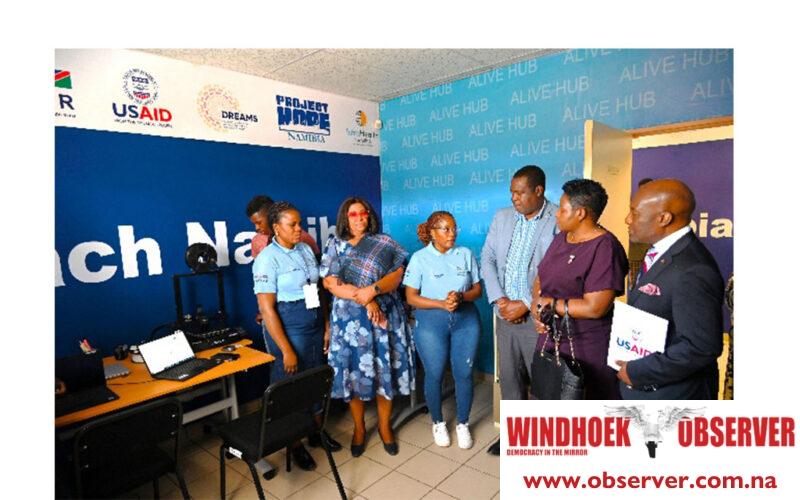Niël Terblanché
The United States government-funded Reach Namibia project has recently launched the Adolescent and Youth Livelihoods and Entrepreneurship Accelerator (ALIVE) Hub in Rundu, the capital of the Kavango East Region.
This initiative aims to equip young Namibians with the entrepreneurial skills necessary to establish sustainable businesses, thereby addressing the high unemployment rates among the youth.
In collaboration with the Ministry of Sport, Youth and National Services (MSYNS), regional and local governments, and private sector partners, an additional ALIVE Hub will be established in Nkurenkuru, Kavango West Region.
These hubs will provide entrepreneurial starter packs and help youth ventures scale.
Dr. Rockfeler Herisse, USAID Acting Country Representative, said at the launch that the Hub space will serve as a training ground where young people can develop innovative ideas, design products, and refine them through testing and feedback.
He added that the ALIVE Hubs will be well-equipped with computers, printers, and other hardware, along with consulting and outreach services to rural areas.
“The hubs are expected to play an important role in enhancing Namibia’s economic development in the long term,” he said.
He said these hubs aim to create a supportive ecosystem for young entrepreneurs by enhancing connections between youth and stakeholders such as government agencies, civil society partners, private sector investors, and employers through pitch exhibitions, coaching, mentoring, and training sessions.
The initiative is part of the broader Reach Namibia project, supported by the United States President’s Emergency Plan for AIDS Relief (PEPFAR) through USAID and implemented by Project Hope Namibia and Intrahealth Namibia.
He added that the new hubs are a demonstration of the U.S. government’s continued commitment to providing health and economic relief to the people of Namibia.
The concept of youth entrepreneurship hubs is not unique to Namibia. Other countries have launched similar initiatives with promising results.
For instance, EQWIP HUBs, a global network of youth innovation spaces, operates in 18 urban centres across six developing countries.
These hubs provide market-driven work skills and entrepreneurship incubators, particularly for young women, to advance their lives and find meaningful employment (Youth Challenge International).
In East Africa, the Youth Inclusion Project by Heifer International in Uganda and Tanzania focuses on empowering youth through agricultural and vocational training, connecting young entrepreneurs with markets, and providing technical services.
Similarly, the TechBuzz Hub in Uganda targets youth passionate about entrepreneurship and technology startups.
This hub offers free consultations and mentorship, essential for startups to realise their potential. It also plans to establish a financing system to support startups during their launch and expansion phases.
Herisse said that the launch of the ALIVE Hubs in Namibia is an additional tool available to young people to develop entrepreneurship skills and address unemployment.
By drawing on the successful models of similar hubs in other countries, the ALIVE Hubs in Rundu and Nkurenkuru are set to make a positive impact on economic development.




